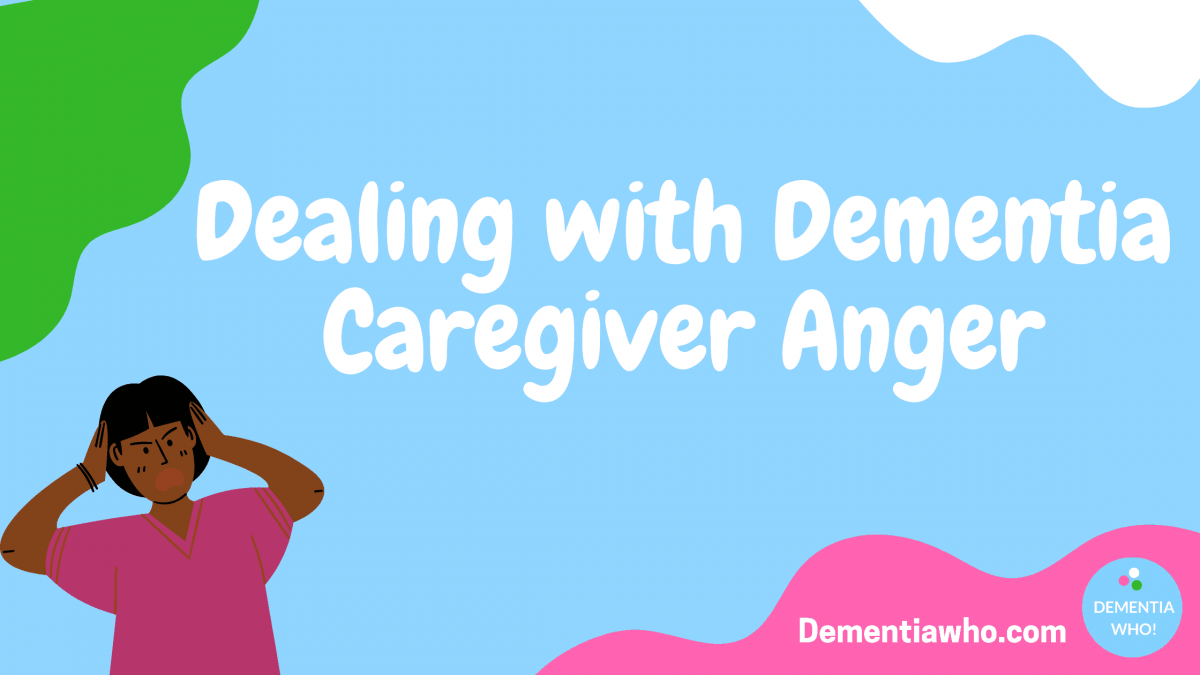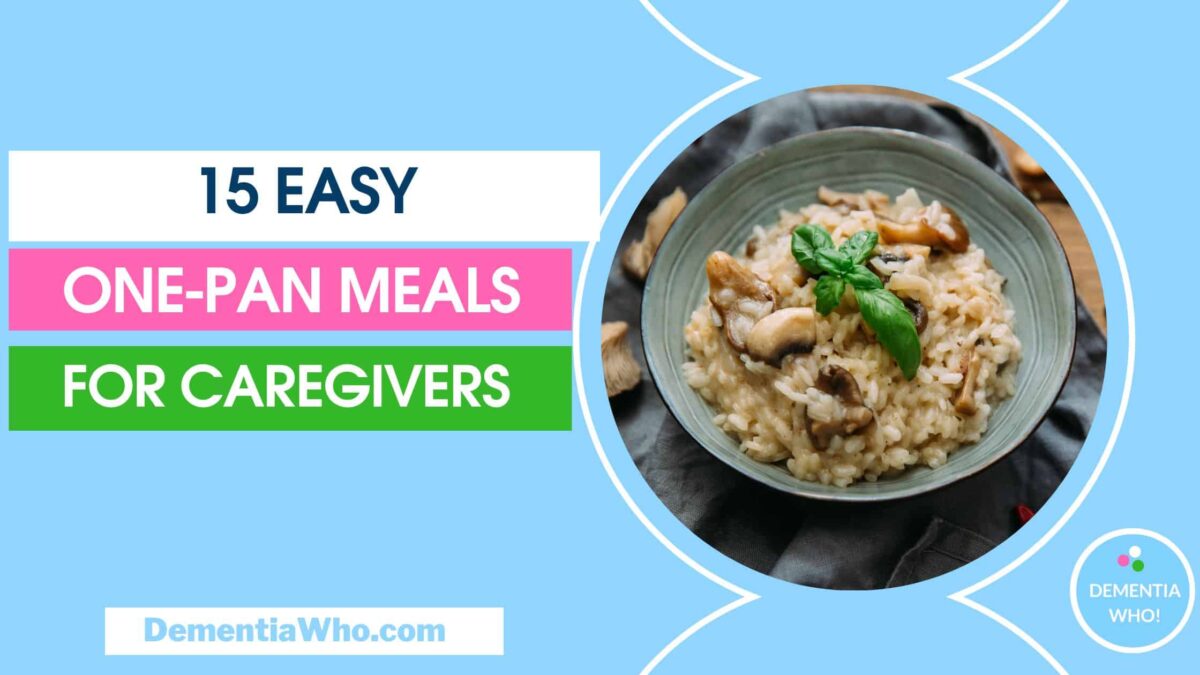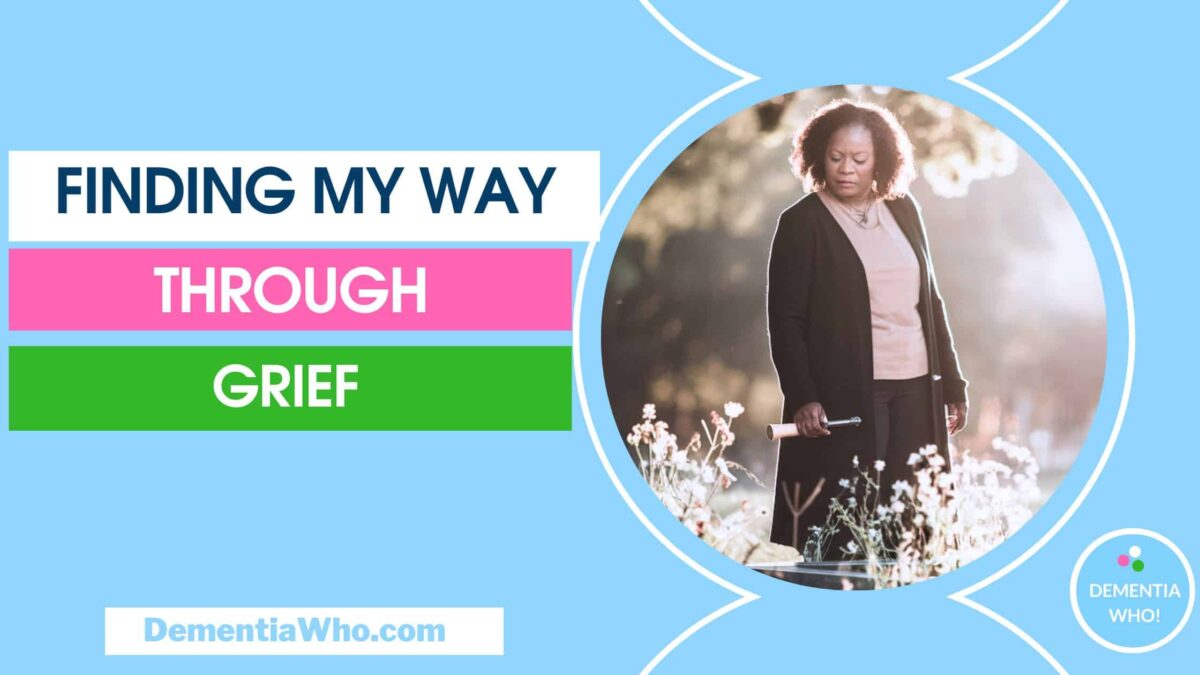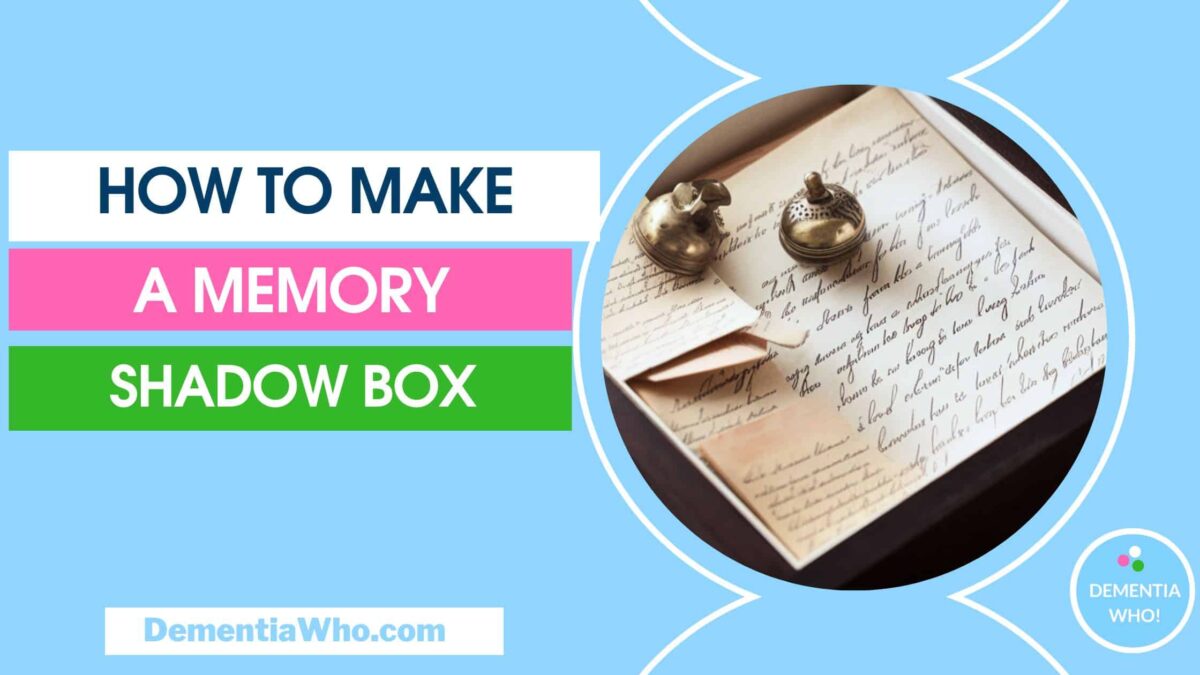I’m starting to get angry for some reason with mum. I’m ashamed to admit it as I know that’s not fair on mum. I wasn’t even aware I was feeling it. It was only after a recent incident that I brought it to the fore and the need to learn how to deal with dementia caregiver anger.

What’s Causing the Anger?
It’s a lot of little things. I’ve never had to worry about mum eating anything strange before. I could leave the room without worrying that whatever was within reaching distance would not go in her mouth. Not anymore!
The other day, I saw mum mistaking tissues for food for the first time. She was dipping tissues in her tea and then putting them into her mouth. I just jumped up automatically and shouted for her to stop. I thought she was eating the tissues.
I didn’t think. I reacted negatively by shouting. But I just wanted to stop mum from eating them. Once I calmed down, I explained what I thought was happening, and then mum calmly told me she wasn’t going to eat it. She was just sucking the tea from it! Perfectly reasonable behaviour!
Inside, I’m saying to myself, why can’t you just drink it from the bloody cup! Why are you doing this? Is it just to wind me up! I keep having this inner dialogue with myself when mum does something surprising or weird. It’s negative dialogue, especially when she’s doing something that I know she can do for herself.
As caregivers we face many challenges it’s hard sometimes to see them fully or get others to recognise the breadth of caregiving, you can read more in this article about the main challenges faced by dementia caregivers.
Recognising your Anger
I keep thinking of the worst of her rather than her best. Little things have become annoying and are building up this low level of anger, like asking me to feed her when she’s capable of still eating and drinking herself (before the tissues!), spitting out food or water or asking me to brush her teeth. It’s nothing really, but it all these little bits of nothing, where I know she can do things but isn’t is just aaargggghhhh!
I’m trying to keep everything written down in my journals to see things with a fresh perspective when I read over them the next day. I hadn’t picked up on this internal anger that had been simmering underneath until then.
These new traits of mum where she’s become more babyish are the only way I can describe it has just made me angry.
My reaction was not fair to her, and it was not right. I’m not proud of my feelings, but they’re my feelings, whether right or wrong. I know I’ll be judged by how petty this may seem, getting angry over the smallest things, but it’s a build-up of minor irritations. I’m only sharing this so that others who are going through something similar will know it’s not just them.
Learning from Mistakes
I suppose the only good thing is at least I’ve realised it. I’m not doing well with mum at the moment. When I look back, like when she asked me to brush her teeth, I could’ve taken that request more positively.
I may have been able to see the situation with fresh eyes If I had taken a breath and not had this internal negative dialogue.
Instead of being irritated, I could have seen that mum maybe was struggling, confused about the purpose of a toothbrush. Instead of getting angry, I should’ve reassured her and showed her how to use it.
Initially, I had no idea why, but thinking about it again, it’s the fear. I believe these new traits highlight that mum’s dementia is steadily progressing, and rather than deal with that, I’m displacing my fears through anger.
How you express anger is also important in recognising the signs. I can go either extremely quiet so I don’t say anything I might regret or I can lose my cool and raise my voice without thinking. If you feel yourself clenching, holding your breath, etc., it’s probably time for you to break from the situation and calm down.
Steps to Help Deal with Dementia Caregiver Anger
I’m taking steps to help. Things like the below may help in dealing with dementia caregiver anger.
- Acknowledge your feelings, realise it’s not unusual to have anger
- Forgive yourself, and don’t let guilt consume you
- Identify the root cause – what exactly is the real reason for this anger, is it rooted in your historical relationship, is a fear of something, is it logical irritation, and if it isn’t, why not. Sit down and write out all the reasons you can think of for feeling this way.
- Put a positive action plan into place on how to move away from this anger
- Find somewhere to offload those negative feelings, e.g. gratitude Journal, some form of exercise, mindfulness, join supportive groups online or talk to family & friends. It can feel shameful to admit these feelings, but those close to you will understand the need to vent.
- Put yourself in your loved one’s shoes if you feel your temper rising and see it from their perspective.
- Walk away when you start to feel you can’t contain your anger
- Reframe the situation; remember the person you’re talking to has a HIDDEN illness. They’re not doing something just to annoy you!
- Take some respite, accept offers of help from others take some self-care
I don’t have all the answers, just what I’m trying for myself as I work through our life’s day to day challenges and share them with you in case it helps someone else.












Thank you for sharing! You are doing so much for your mom – I hope you give yourself some love and acknowledgment for what you’re doing!
Thank you!
You are so right. I have trouble hearing and when I have been angry with my wife, I have shouted and I know that she has reacted. I have hearing aids and must remember to put them in before dealing with her.
That’s a good point, best to take yourself away and remember those hearing aids, thanks for your comment!
Thank you so much for this. I sometimes get so frustrated when my Mum asks me to do something which she’s perfectly capable to do herself or when she asks me what to do next and then does the complete opposite! I then get angry and emotional with myself because I’m supposed to be “The adult “. This generally happens when she’s woken me up numerous times during the night just to ask the time even though she’s got a large bedside clock.
I know how you feel, night time disruptions are even harder to deal with. I hope that this article helped.